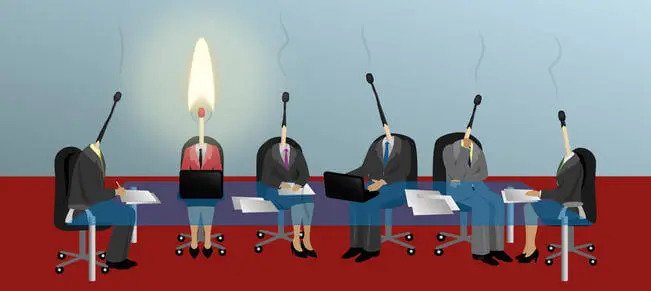
How to stop ‘Stress leave’ at work
- April 3, 2022
- 4:50 pm

In May 2019, the World Health Organization announced the 11th revision of its International Statistical Classification of Diseases and Related Health Problems, which includes an updated and much more detailed entry on burnout. Previously defined only as a “state of vital exhaustion,” it’s now classified as a “syndrome conceptualized as resulting from chronic workplace stress that has not been successfully managed.”
The WHO emphasizes that burnout is specifically work-related—it “should not be applied to describe experiences in other areas of life”—and is characterized by:
- A sense of exhaustion or depletion
- Mental distance from or negativity or cynicism about work
- Decreased effectiveness at work
Sure, you get the overall idea and understand that it’s something that persists for longer than a week or two. But it can still be challenging to turn the magnifying glass on yourself and recognize when you might be veering straight toward feeling burnt out at work. Here are some TLC tips you can take to avoid this feeling;
Introduce Plants
Clear your workspace and introduce some greenery. Research has shown that plants increase attentiveness, improves wellbeing and can lower blood pressure. With the trend towards minimalist offices, a study from Exeter University also found that the introduction of plants into an otherwise “lean” space can improve productivity by 15 per cent.
Stash healthy snacks in your drawer
“Without a satiating healthy nibble, we can easily become the sugar monster and devour the biscuits in the kitchen office or worse, want to break into the chocolate-filled vending machine,” says nutritionist Michele Chevalley Hedge.
“Having nuts, seeds, plain yoghurt and some berries, brown rice crackers with some nut butter and a nourishing cup of tea can calm any bored, stressed, or simply hungry moment – not to mention fuel your brain.”
Boost your positivity about the future
Feeling a bit down about work? Pop a positive affirmation in your workspace.
Have a holiday planned, even if it’s a short getaway. Set a career goal. That way, you have something to look forward to and work towards.
Spend a few minutes being mindful
Every day, make a point of pausing for a few minutes to pay attention to your surroundings mindfully.
This could be everything from listening to the sounds around the office, noticing the temperature in the room, to the sensation of sitting in your chair.
Numerous studies have shown the benefits of mindfulness on everything from stress to anxiety, attention and cognition so it’s an exercise that’s worth making time for.



